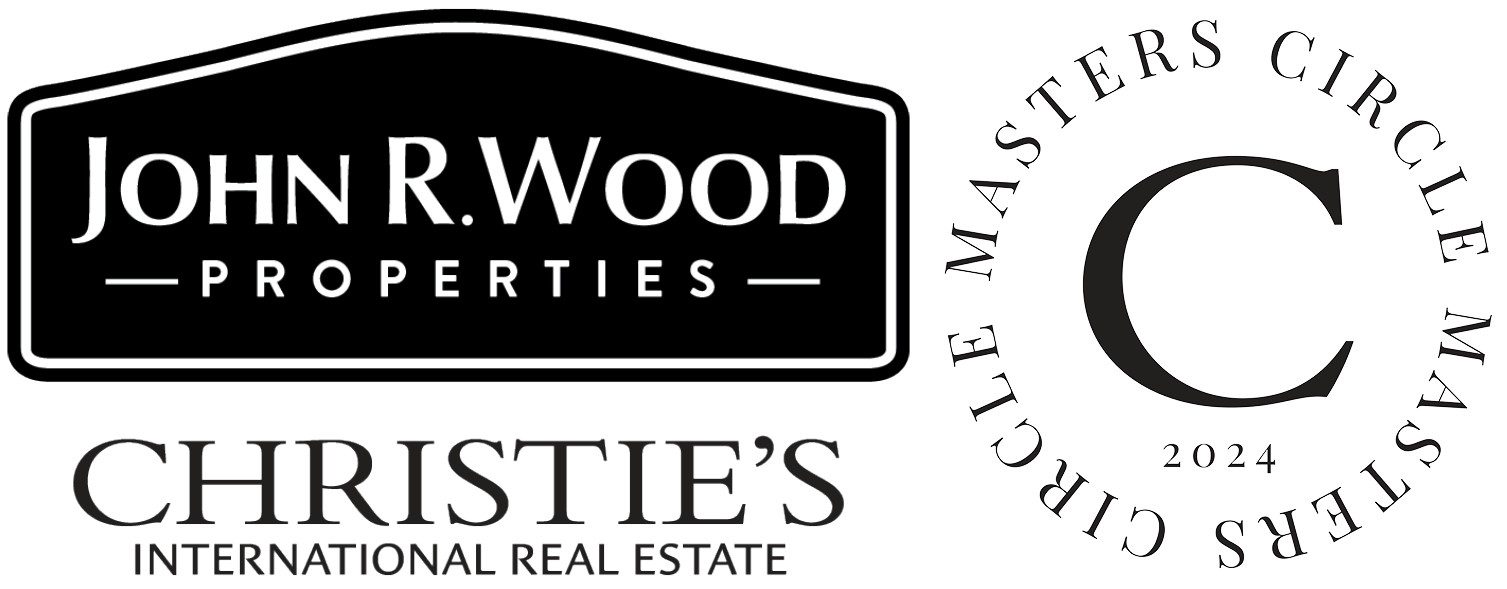We Are the Starr Team
full time real estate advisors
Know The Industry
43 Years Of Experience In Luxury Real Estate
“Owning a home is a keystone of wealth, both financial affluence and emotional security.”
understand the market
Elise & Tom are full time global real estate advisors and the leaders of The Starr Team. Elise and Tom have over forty three years of successful real estate experience. She has expertise in residential, commercial, industrial sales and construction as well as restoration of historical buildings.
Build People's Dreams
Professionalism, personal integrity, and taking a very personal interest in each of their clients are the team’s priorities. Elise and Tom live in a boating community and have extensive knowledge of waterfront properties. You may see them boating in the area. Why not preview your next waterfront property by boat with them?
Work Hard to Succeed
Tom brings his military discipline and business expertise to the team. He has experience in sales, marketing, and real estate investing. Tom has also earned the ChFc (Chartered Financial Consultant) designation. He served as Past President Council of Economic Development for Alachua County, Florida. Growing up in Baton Rouge, La., Elise attended Louisiana State University and began her career in that fine city.
Elise Starr
Elise is very active in her profession. She serves on the Grievance Committee and teaches Pathways to Professionalism for the Royal Palm Coast Realtor® Association. She obtained her Graduate Realtor Institute (GRI) in 1987. A consistent top performing agent in the area and within her company, Elise provides a level of professional service unmatched in Southwest Florida.
Tom Starr
Tom served in the United States Navy and was qualified in the Submarie Service. He served aboard one of the first ballistic missile nuclear submarines, USS Abraham Lincoln SSB(N) 602. A native of Pennsylvania, he has been a resident of Florida for over 20 years. Tom graduated from Otterbein University with a Business degree. He is also a Chartered Financial Consultant.
FAQ
We Are Here To Help You With Any Questions You May Have
This should be your first question, because different types of listing agents include different services, and you’ll want to know what your 5-6 percent commission is buying.
These are the standard services typically included by listing agents.
MLS listing
Every listing agent, whether full-service or discount, should take care of actually listing your home on the MLS, with all the proper information, a listing description and photos. Note that if you’re selling your home FSBO but still want it listed on your local MLS, you can pay an agent a flat fee of a few hundred dollars to post your listing (but that’s where their services end).
Comparative market analysis
Both full-service and discount brokers should guide you to the right listing price for your home. They’ll use recently sold similar homes in your area (commonly called comps) to determine a fair market value, taking into consideration the state of your local market to develop a strategy that will help you sell quickly.
Showing assistance
Your listing agent should attend all showings, send a member of their team to host them, or provide their own lockbox so buyer’s agents can let themselves in if your agent is unavailable. Ask your agent who will be present for showings, especially if you’re uncomfortable with a lockbox arrangement. Most reputable agents will host showings themselves or have someone from their team present.
General advice
You’re paying your agent for their expertise, so they should be willing to share tips on minor repairs or renovations to make, staging guidance, and home features that are popular with buyers in your area.
The main reason sellers opt to sell FSBO is because they want to avoid paying agent commission — or at least lessen the amount of commission they’ll have to pay. The typical commission paid upon the sale of a home is between 5-6 percent, but keep in mind that half of that usually goes to the buyer’s agent, and the listing agent pays for marketing costs, broker splits and taxes out of their portion
Approximately two-thirds (69 percent) of sellers accept their agent’s terms without negotiating. And about 1 in 3 sellers negotiate with their agent (31 percent). Of those who do negotiate, 57 percent are successful in changing some or all of the agent’s terms.
As you negotiate, make sure the discount you’re working toward comes out of the listing agent’s portion only. Commission percentages for buyer’s agents must be listed on the MLS, and if you offer a lower-than-average buyer’s agent commission, you may have a harder time attracting a buyer, as their agent will be less inclined to show your home. If your agent tries to pull a fast one and lower the buyer’s agent commission instead of their own, they aren’t an agent you can trust, and this action could be grounds to cancel your agreement with them.
If negotiations to lower the commission percentage are unsuccessful, here are some things you might be able to offer your agent to entice them:
Fewer services
If you’re a whiz at photography and social media, you could offer to handle those aspects of the listing, which takes some tasks off your agent’s plate. If you take this route, make sure to read up on best practices for marketing a home for sale.
Home showing flexibility
The agent may be willing to discount their commission if you’re flexible about showings — meaning either you’re willing to take showings on very short notice or you agree to lockbox showings.
Sellable home
If you’re selling in a hot real estate market and your home is desirable to buyers, the listing agent might be willing to take a lower commission because it will take less effort to find a buyer, and the negotiations may be simpler.
Agents can only learn so much from real estate classes. A good agent should have real-life experience in your area. If they’re new to the business, they should be part of a team led by an experienced local agent who can guide them through the sale.
When asking about experience, look for agents who know the neighborhood and its nearby attractions and someone that can demonstrate the perceived market value of certain features of your home.
Ask about list-to-sale price ratio
A list-to-sale price ratio is the percentage of a listing agent’s clients that sell their home at or near their listing price. It gives you insight into an agent’s negotiating skills, and the higher the percentage, the better. For example, your agent might say, “My sellers receive an average of 95 percent of their listing price.”
As part of their listing presentation, an agent should tell you what the average list-to-sale price in your neighborhood is, as this information is available on the MLS. Ideally, their personal ratio should be higher than average, but it should at least be in line with local averages.
If the agent doesn’t have a lot of experience in your specific neighborhood but you’re interested in working with them anyway, ask them for their list-to-sale price ratio and the local average for a part of town they do work in.
Ask about interested buyers
A good agent is well connected in the area, which means they might already have interested buyers lined up. They should also have a good network of other agents that they can promote your listing to.
The correct answer to this question is, “I don’t have hours.” But be reasonable, because your agent has a life outside work too. You should be able to reach your agent for urgent questions by phone during the day and evening hours. Ask them what their policy is if you have to text late at night. When will they get back to you? The sooner the better.
Ask about your point of contact
If you choose to work with a high-producing agent who leads a large team or passes tasks off to team members or assistants, you may not always end up speaking to your agent directly. The downside can be the potential for miscommunication, but generally speaking, agents who have lots of listings are probably successful because they’re good at their job.
This question is especially important for full-service agents. Every agent has a slightly different strategy for marketing their clients’ homes for sale, so you’ll want to know how your agent plans to find buyers for your home.
Professional photography
If you’re paying for a full-service agent, they should cover the cost of professional real estate photography for a median-priced home or above. Most agents work with the same photographer consistently, so ask to see some examples of their work. We always include videography with our listings.
Listing descriptions
You’d be surprised how many MLS listing descriptions only include one or two lines of text, filled with confusing abbreviations. Choose an agent that can craft a descriptive and compelling listing description that highlights your home’s best features. Ask to review it before posting so you can check for inaccuracies, and confirm that they have someone who will check for grammar or spelling issues.
Social media
Your agent should have an active presence on Facebook, with plenty of followers to share listings with. Instagram and LinkedIn profiles are a plus too. The best agents are also well versed in posting paid ads to social media channels. They should know how to strategically “boost” your listing post so that it targets the right audience at the right time.
You don’t need to ask for a reference letter — it’s not a traditional job interview. But, your agent should be able to point you to a webpage with testimonials from past clients or put you in contact with someone who has worked with them before.
Check Zillow, Trulia and social media
The internet makes it easy to track down unbiased agent references. Don’t be afraid to ask about negative reviews. A professional agent shouldn’t get defensive or dismissive, but rather talk through the circumstances that led to the review.
One of the most important final questions to ask a real estate agent is about the listing agreement. A professional agent should walk you through their standard contract and answer any questions you have. You shouldn’t feel pressure to sign, and they should give you time to take the contract home and review it further.
Ask about the cancellation clause
Listing agreements have an expiration, and the length of the contract depends on the state of your real estate market — 30-, 60-, 90- or 180-day expirations are the most common. You can also negotiate the term upfront. While you may not expect to cancel before your contract expires, it’s important to know what you’re agreeing to, in case the unexpected happens. There are two common reasons why sellers terminate their contract early.
You’re not satisfied with your agent: You may be able to terminate your contract if the agent hasn’t been delivering on the services they agreed to provide, but it can be difficult to prove. Make sure there is specific language in your contract that outlines exactly what the agent is responsible for. Also include language stating that if your agent doesn’t complete those tasks, you can cancel with no commission owed and find a new agent that better fits your needs.
You have a change of heart: If you decide it’s not the right time to sell, most reputable agents will allow you to cancel early with no fee as a courtesy. However, if your agent has already paid for a lot of marketing costs or found you a buyer and then you tried to cancel, you may be on the hook for reimbursement or a partial or full commission.

